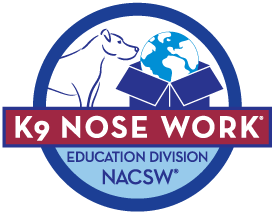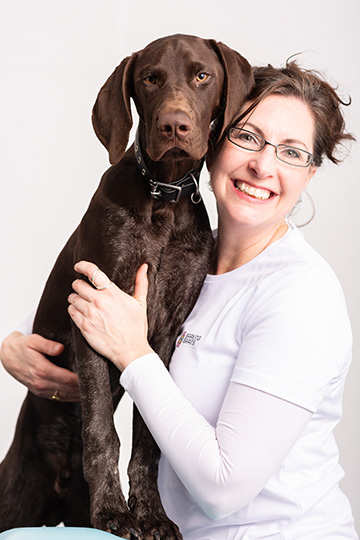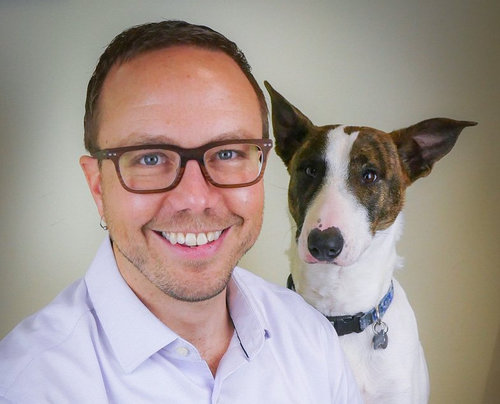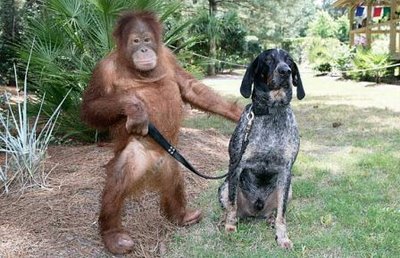Webinar: Unlocking the Power of Classical Conditioning in Canine Nosework
$45 for General Public including Lapsed NACSW Instructors and those who have registered for an instructor course but have not yet attended Segment 1
$35 for Active NACSW Instructors
INSTRUCTOR: Dr. Kathy Murphy, BVetMed, DPhil, CVA, CLAS, MRCVS
WHEN: Monday May 26, 2025 / 10:00am to 12:00pm Pacific Time
WHERE: Virtual Lecture Hall via Zoom. Link will be sent upon receipt of payment.
NACSW CEUs: 3 for CNWI
CCPDT CEUs: 2 for CPDT-KA/KSA, 1 for CBCC-KA (you must email silke@k9nosework.com with the secret word and your instructor number to receive the CEUs)
IAABC CEUs: 2 (you must email silke@k9nosework.com with the secret word in order to receive the IAABC CEU code)
Webinar Description:
Classical conditioning plays a crucial role in the development of effective scent detection performance in dogs, yet it is often overshadowed by a focus on operant conditioning in training methodologies. This webinar explores the different ways classical conditioning contributes to a dog’s ability to engage in nosework with confidence, motivation, and precision. By examining the underlying neuroscience, this session provides a deeper understanding the multitude of associations that influence a dogs’ learning and performance in scent detection. Scent work is a unique discipline in which dogs utilise their natural ability relying on their innate olfactory capabilities to navigate and locate target odors. While operant conditioning is widely focussed on to reinforce desired behaviors, classical conditioning is fundamental in shaping the dog’s intrinsic drive to search efficiently. Classical conditioning influences emotional responses, expectation formation, and the overall reinforcement history that guides a dog’s approach to scent detection.
This webinar, presented by Dr Kathy Murphy, a clinical-academic veterinarian and neuroscientist, delves into the fundamental principles of classical conditioning and its impact on nosework. Dr Murphy earned a PhD in behavioral neuroscience from the University of Oxford and has extensive experience in canine behaviour and training. With her husband, a qualified and experienced scent work instructor, she regularly provides camps, seminars and webinars on topics related to competition scent work and the use of olfactory activities to enhance the wellbeing of dogs. This webinar highlights how early conditioning can shape long-term motivation and engagement in scent detection tasks. The discussion also addresses how classical conditioning can be leveraged to enhance learning outcomes and maintain a dog’s independence and problem-solving abilities.
Another important topic covered in this webinar is the potential pitfalls associated with misapplied operant conditioning, particularly when it is used in a way that conflicts with the dog’s intrinsic motivation. When handlers place excessive emphasis on structured reinforcement schedules or external cues, they may inadvertently diminish the dog’s autonomy and fluidity in scent detection and paradoxically reduce motivation. Understanding how classical conditioning underpins a dog’s ability to engage in a task with intrinsic motivation allows trainers to create more effective and sustainable training methodologies, utilising a range of tools. The webinar also discusses practical applications of classical conditioning in real-world scent detection training. This includes strategies for introducing and pairing odor, reinforcing search behaviors, and managing emotional responses to environmental challenges. By recognizing the breadth of associative learning, trainers can develop more adaptable and resilient dogs who are better equipped to handle novel search scenarios.
By the end of the webinar, participants will have a comprehensive understanding of how classical conditioning influences a dog’s performance in scent work. They will gain insights into the role of associative and non-associative learning in building engagement, the necessity of balancing different training methodologies, and the long-term impact of early conditioning on performance. This discussion provides a valuable framework for trainers, handlers, and behavior professionals seeking to refine their approach to nosework and optimize the learning experience for their canine partners.
REGISTRATION:
Please click the link below to begin the registration process. You will be asked for your name and email, then payment information.
NOTE: Active NACSW instructors should use the “unpublished” email address associated with their instructor portal account.
Description
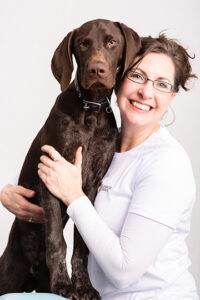 About the Instructor:
About the Instructor:
Dr Kathy Murphy BVetMed, DPhil, CVA, CLAS, MRCVS is a clinical-academic veterinary surgeon and neuroscientist with a special interest in canine behaviour health. She holds post graduate clinical qualifications and is residency trained in veterinary anaesthesia and analgesia and laboratory animal science and has a PhD in behavioural neuroscience from the University of Oxford. From her base in the UK, where she is Founder and Director of Barking Brains Ltd, she provides clinical, educational and business consultancy services Internationally. She is faculty at Agility University, where her focus is on providing accessible neuroscientific information in a practical and easily applicable format for handlers to take their dog-sport performance to the next level and enhance the wellbeing of their dogs. She is co-founder of EthicsFirst.org with an interest in clinical ethics, holds teaching and examiner positions in the UK and abroad and is past Trustee and veterinary advisor of 16 years for the Rottweiler Welfare Association. She lives in Scotland with her husband who is a scent detection and trailing instructor, and their three dogs.
